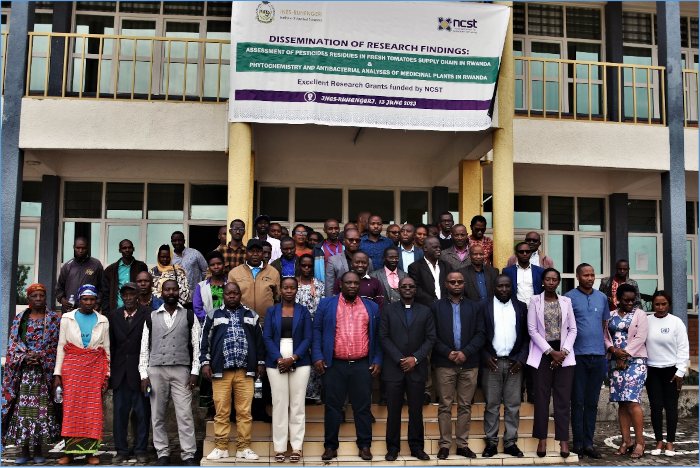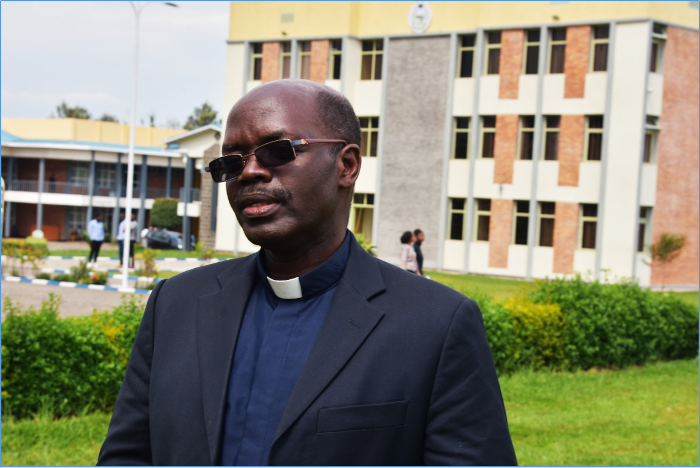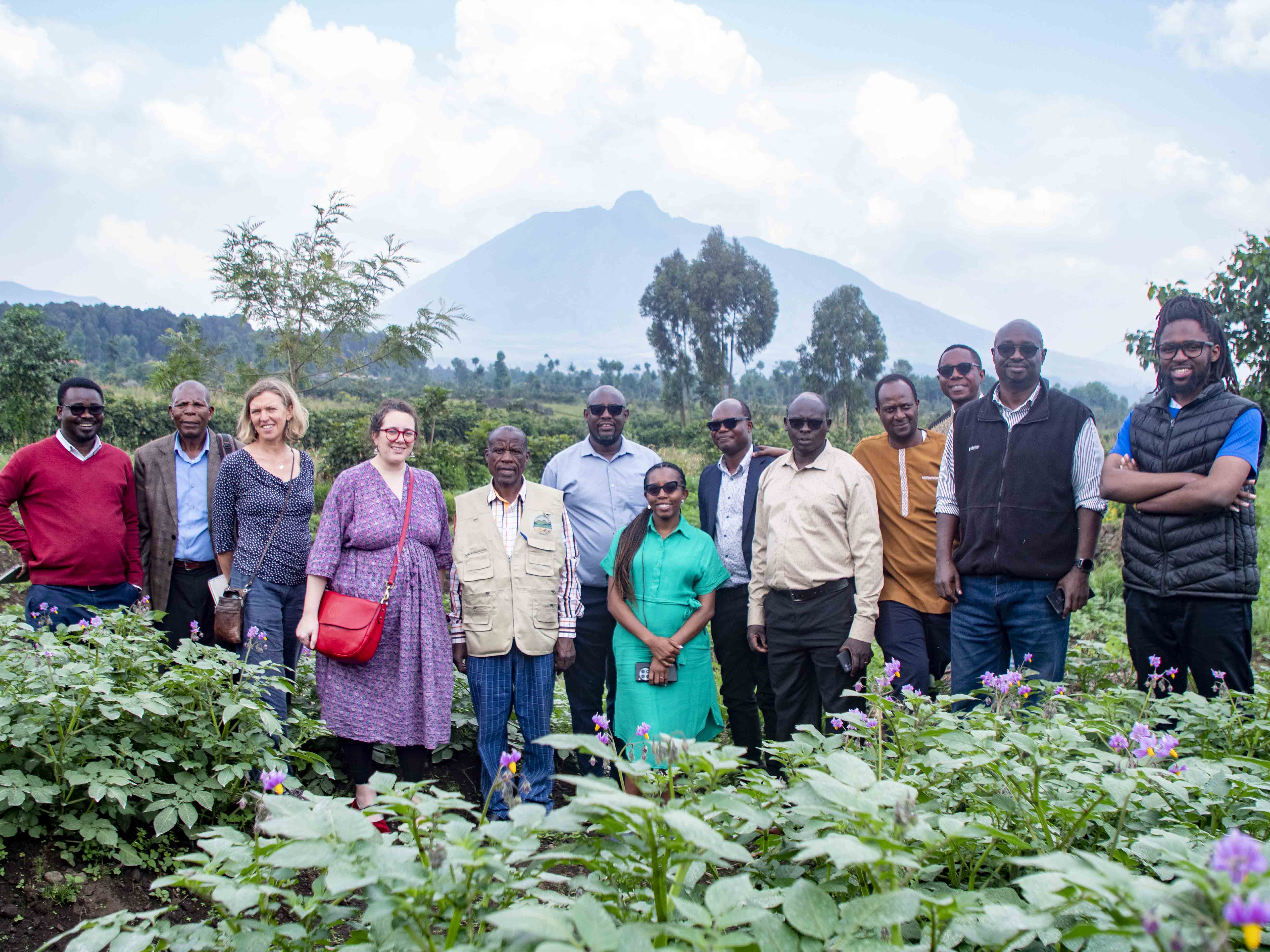INES-Ruhengeri will continue contributing to the community’s well-being
On Tuesday, 13th June 2023, INES-Ruhengeri organized a meeting for disseminating the research findings of the “Assessment of Pesticides Residues in Fresh Potatoes Supply Chain in Rwanda” and “Phytochemistry and Antibacterial Analyses of Medicinal Plants in Rwanda”. Both projects are Excellent Research Grants funded by the Rwanda National Council for Science and Technology (NCST).
 Participants to the meeting (photo/Vedaste)
Participants to the meeting (photo/Vedaste)
While addressing to the participants including a team from the Rwanda National Council for Science and Technology led by Dr. Japhet Niyobuhungiro, representative of the Ministry of Health (MOH), Rwanda Biomedical Center (RBC), Rwanda Food and Drugs Authority (FDA), National Industrial Research and Development Agency (NIRDA), University of Rwanda, Tomato farmers representatives, Traditional healers, INES staff and students; Vice-Chancellor of INES-Ruhengeri, Fr. Dr. Jean Bosco Baribeshya said that INES-Ruhengeri has taken into consideration to contribute and maintain the well-being of the community.
“INES-Ruhengeri as a higher learning institution that promotes research in applied sciences, Health and Biotechnology Sciences are among the research of interest that INES-Ruhengeri has taken into consideration to contribute and maintain the well-being of the community”, the Vice-Chancellor.
 Fr. Dr. Jean Bosco Baribeshya, Vice-Chancellor of INES-Ruhengeri (photo/Vedaste)
Fr. Dr. Jean Bosco Baribeshya, Vice-Chancellor of INES-Ruhengeri (photo/Vedaste)
Vice-Chancellor went on saying that through NCST, the Government of Rwanda has funded 5 projects at INES with substantial Grants in different areas of Sciences and Technology including Biomedical Sciences, Biotechnology, agriculture, food security and Engineering.
He thanked NCST for the fruitful partnership which they are developing together to promote the well-being of the Rwandan population through research and innovation.
The findings of the two projects presented yesterday, highlight the need of sustainable investment in citizen-centered research in order to contribute in solving the challenges faced by the population.
Talking about the Assessment of Pesticides Residues in the Fresh Potatoes Supply Chain in Rwanda, Dr. Marc Anthony Ndisanze said that the findings will contribute to the reduction of pesticides in the diet and develop a sustainable phytopharmacology industry in Rwanda. He recommended that tomatoes should be well washed at least three times before consummation.
For Phytochemistry and Antibacterial Analyses of Medicinal Plants in Rwanda, traditional healers said that the research will contribute to upgrading their medicine to the next level as they will be based on scientific research findings. They promised that they will continue working hand in hand with INES-Ruhengeri as well as modern medicine in order to promote the population’s well-being.
The BioMex Certificate Programme – Shaping the Future of Biotechnology in Rwanda BioMex certificat…
LEARN NowOn February 7, 2025, students from the Department of Architecture and Enterprise Management at INES…
LEARN NowOn February 5, 2025, INES-Ruhengeri had the honor of hosting the F2FinRW Project Official Visit, we…
LEARN Now







